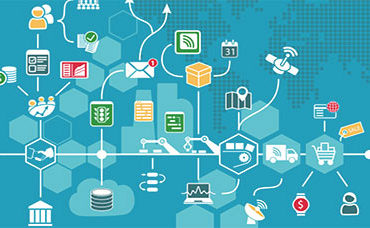U.S. Looks to Forge IoT Strategy

While encouraging a secure and interoperable Internet of Things (IoT), the U.S. will work to provide spectrum and other infrastructure assets while promoting global interoperability standards and technology innovation, a Commerce Department report stresses.
The report released Thursday (Jan. 12) by the National Telecommunications and Information Administration aims to formulate a national IoT strategy. Among other responsibilities, the Commerce Department agency manages spectrum and network interoperability issues.
High on the list of priorities along with ongoing interoperability concerns is IoT security. The issue was highlighted last year when the Marai botnet exposed security holes in connected devices.
"IoT raises the stakes significantly," the U.S. report notes, since such cyber attacks "can now affect medical devices, supply chain reliability and cars driving down the highway, raising the real possibility of physical harm." Previously, such attacks were restricted to platforms such as industrial controls, it noted.
To get a handle on security and interoperability issues, the report makes the case for a federal role in promoting technical standards while helping to seed the market for new IoT applications. It would also referee nettlesome issues swirling around data privacy.
The report also noted that many industry observers view the IoT as "an evolution rather than a revolution in information and communication technologies." Commenters also took a whack at defining IoT, although some argued that a strict definition is putting the cart before the horse.
Some industry players viewed the IoT as a collection of connected devices and applications or the integration of sensors, actuators and networks. Others focused on higher-level big data attributes. IBM, for example, defined the IoT as the "growing range of Internet-connected devices that capture or generate an enormous amount of data every day along with the applications and services used to interpret, analyze, predict and take actions based on the information received."
Telecommunications vendors focused on networking aspects. IoT is a "dynamic global network infrastructure with self-configuring capabilities based on standard and interoperable communication protocols that connects to smart 'things.'"
The evolution of the IoT also has drawn the attention and advocacy of think tanks seeking to shape U.S. technology policies. "The Department of Commerce has built a strong case for a proactive and coordinated effort throughout the federal government to support the Internet of Things on a national scale," noted Daniel Castro, director of the Washington-based Center for Data Innovation.
The group also backs a "predictable and minimalist regulatory environment [while] fighting international efforts to limit the free flow of data across borders." That's a reference to European efforts to limit the transfers of private data to U.S.-based datacenters. A European court invalidated so-called "safe harbor" provisions in 2015, replacing them last year with strict data governance rules that require U.S. companies to store data in the country of origin.
The Commerce Department said this week it would follow up its IoT report with a request for industry feedback as it seeks to develop an interagency approach for promoting the IoT rollout.
Efforts to forge a U.S. IoT strategy also reflect the global economic stakes as policy makers look for new ways to boost growth. For example, International Data Corp. reported this week that global spending on IoT infrastructure reached $737 billion in 2016. Global investments are expected to approach $1.3 trillion by 2020, IDC predicted.
Related
George Leopold has written about science and technology for more than 30 years, focusing on electronics and aerospace technology. He previously served as executive editor of Electronic Engineering Times. Leopold is the author of "Calculated Risk: The Supersonic Life and Times of Gus Grissom" (Purdue University Press, 2016).










